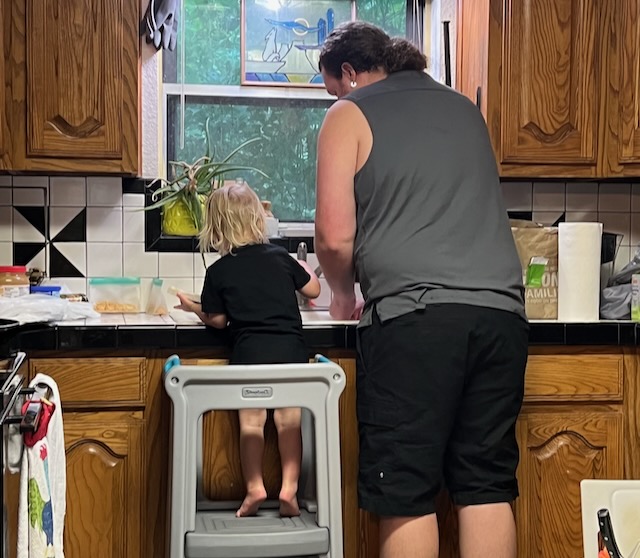At Greystone House we have quite a few important items on our checklist as children move from stage to stage. Crawling, first steps, non-verbal communication, first words, and more are all things we watch for and use as gauges for where a child is at in their development. Many of these things are innate and will happen sooner or later regardless of external influence. But emotional maturity is high on our list because it is an item that rather than being innate, must be taught and reinforced. Far from being a low priority item, emotional maturity is as important (if not more so) than being aware of letters and numbers as children transition to elementary grades.
Entering first grade, children are confronted with social hierarchies and politics to navigate that are going to be, in some fashion, new to them. One of the advantages for children in childcare is that all of them have at least been in a group social situation by the time they move to elementary school. But mere attendance in a group environment does nothing to prepare a child for the transition. New rules, a much larger environment, new children, new routines, different expectations on productivity and behavior, and different levels of attention than they are used to getting all face the child who makes this transition. If they are not emotionally prepared it can result in tantrums, feelings of inadequacy. digging in their heels with negative behaviors, and inappropriate outbursts. Longer-term, these behaviors can have consequences with regard to social stratification and even academic performance. We do a lot at Greystone House to prepare children for the transition, but what is it that parents can do?
One of the biggest things you can do as parents is to identify expressions of emotion in your children (both positive and negative) and help your child name them and recognize them. For negative emotions parents can provide strategies for coping with them as they occur. This can include encouraging the child to speak to an adult when they start feeling the emotion, redirecting their thoughts to another, more positive area until they are calm and even adopting coping mechanisms such as quietly performing concentrated breathing until they calm down. Ultimately children need to know that they will get farther and be happier by being able to control how they approach a problem than by trying to control the myriad of external stimuli that trigger emotional reactions in them.
To be successful, children need practice. This is as true for emotional control as it is for learning an instrument or playing a sport. Generally speaking we have real world scenarios as parents that we can use to help our children practice. Does your child get upset when they don’t like what is served for a meal? Does their innate sense of fairness boil over into yelling or finger pointing when a sibling does something to upset the balance? Use these times to first demonstrate emotional maturity yourself by not overreacting and modeling bad behavior yourself. It is appropriate to note in a matter of fact way that we have to learn to eat a variety of foods to be helpful and then direct the conversation towards the negative emotions they felt and reacted to. This is a prime opportunity to provide ways to practice emotional control.
There is also the need to practice appropriate social demonstrations of emotional maturity. Setting up situations to get that practice is acceptable. One example would be to ask your child what they would do if they are in a school classroom and needed help from the teacher because they were having trouble with their work. Helping them model hand raising and using a polite voice to ask for help follows from this scenario. Talking to your child’s teacher at Greystone House about what triggers them to act inappropriately in social situations and how they deal with it is also quite useful. What you learn can be applied to group play situations outside of school as, generally speaking, your child will interact and behave the same way in both environments.
Above all else, keep in mind that children develop at different rates. Your child may be more prone to tantrums than a neighbors child, but may have an easier time developing physical skills. They can improve though and as parents keeping the importance of emotional development front of mind can ensure that you are ensuring they are heading in the right direction. As always, we are happy to be a resource when you need us.





